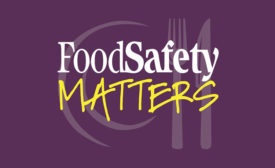Regulatory
BIZTRACKS
Penn State Extension to host FSMA Produce Grower Certification Webinar
October 10, 2023
Evolution of FDA's Regulation of Packaging for Infant Food
FDA has been adjusting its industry guidance for Food Contact Notifications and Food Contact Substances for infant formula since the passage of the Infant Formula Act of 1980
October 9, 2023
Never miss the latest news and trends driving the food safety industry
eNewsletter | Website | eMagazine
JOIN TODAY!Copyright ©2024. All Rights Reserved BNP Media.
Design, CMS, Hosting & Web Development :: ePublishing










